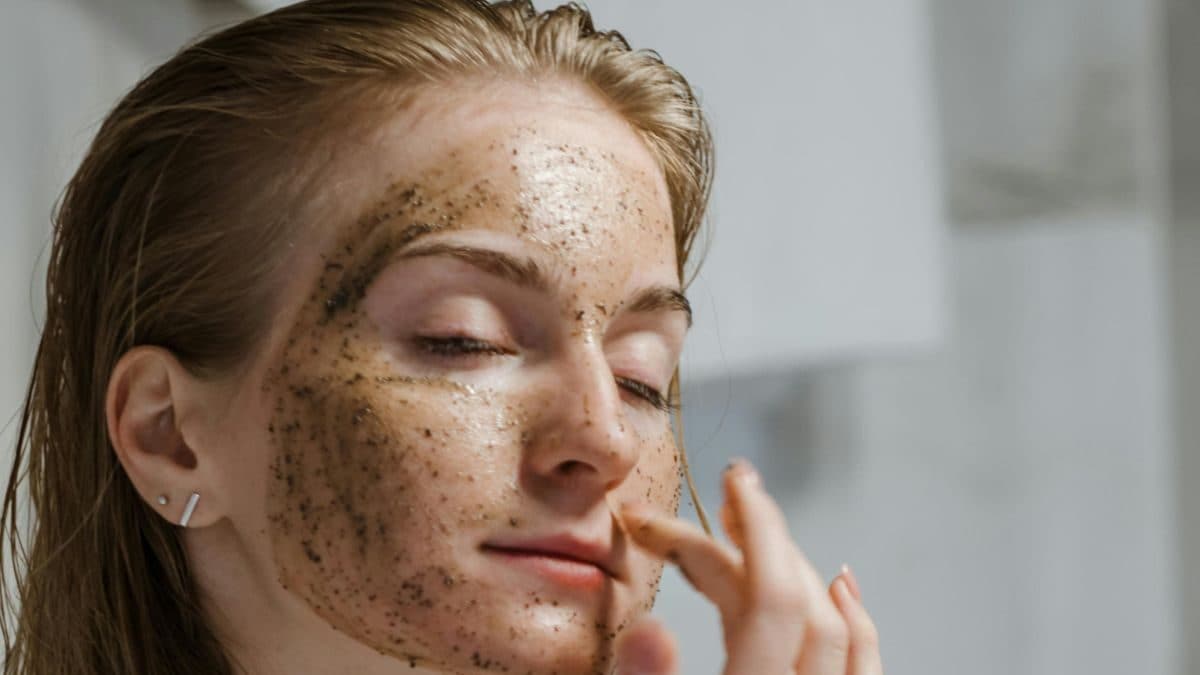On a recent Monday, Karissa Bodnar, 34, founder and CEO of Thrive, a cosmetics company, arrived at a launch party for her latest product line. The location: a fluorescent-lit fifth-floor office in midtown Manhattan. The paraphernalia: cheeses, crudités, beer and wine. The entertainment: a Bluetooth-connected speaker playing 2000s hip-hop (Flo Rida, Lil Jon).
Over the next three hours, dozens of makeup artists, beauty publication editors and social media influencers accustomed to parties in far-flung destinations like Tokyo and the south of France would arrive. Oh, maybe not.
“With all due respect, I don't care if editors and influencers come or not,” Bodnar said, looking around the windowless reception area. He was wearing a suit with a skirt made of turquoise and silver sequins that reflected the lights of the place on the floor like a disco ball. “He had a $25,000 budget, and he wasn't going to host a lunch at the Four Seasons or rent a summer house for influencers to take selfies.”
In the world of beauty marketing, events like the two Bodnar described are relatively inexpensive. Last January, Tarte took 50 influencers and their dates to Dubai and hosted them at a Ritz-Carlton to celebrate the launch of a makeup foundation made from a “multitasking superfruit.” In 2022, Chanel brought influences to Panama to introduce a new beauty line; In 2017, Smashbox introduced new products in Fiji.
For the April debut of Bigger Than Beauty, a line of skin care products, Bodnar chose the headquarters of Bottomless Closet, a nonprofit that helps needy women in the New York area enter the working market. “We found out about them through our community,” Bodnar said. “We ask on social media all the time: 'What charities catch your attention?'”
Thrive donated a million dollars in products, but the real unexpected gift to the nonprofit perhaps was the fairy godmother who decided to wave her wand at them.
“She's the star,” said Melissa Norden, CEO of Bottomless Closet, as she pointed to Bodnar. “People don't come for us, they come for her.”
Much has been said about the Rihannas and Kylie Jenners of the cosmetics industry, celebrities who launched best-selling brands after gaining a large following of fervent followers. One could argue that, given the high profiles of their founders, Fenty Beauty and Kylie Cosmetics were destined for success. Instead, to build a brand—and fill a room with people—Bodnar has used not his name, but his customers' desire to do good with their money and belong to something that goes beyond… well, the beauty. Let's call it the Estée Lauder of the culture of effort.
“A lot of launch events are held in trendy places,” Bodnar told the audience. “I grew up on an unpaved street. I don't know about you, but I'm tired of fashionable events. I think that this It is the new fashionable event: being in places like Bottomless Closet.” The crowd rose in applause and cheers.
'The unicorn par excellence'
If Bodnar was only interested in doing good, Thrive Causemetics—the company's official name, which makes anyone with even an ounce of skepticism hesitate—would be a nonprofit.
“She's always seemed like the quintessential unicorn to me,” said Blythe Jack, a Thrive investor and former partner at TSG Consumer, a private equity firm in San Francisco. She “built a highly profitable business with almost no capital.” In 2017, Jack invested $100,000 in Thrive.
Thrive is a direct-to-consumer brand, which saves you the distribution fees involved in selling through Sephora or department stores. That's a common path for companies founded by stars — that's how Kylie Cosmetics started — but the power of fame has its limits.
“Karissa managed to develop a community and brand loyalty before the market became saturated and the pandemic changed everything,” said Priya Rao, executive editor of The Business of Beauty, a portal that covers the industry.
Thrive did not offer comment on its annual revenue. “I don't want to go around revealing everything to everyone,” Bodnar said. “I earned the place I am in.”
The reckoning
If Bodnar is cautious about the details, it is because she has faced controversy. There's the plaintiff who sued Thrive in 2018, alleging that the company wasn't donating to charities in the way it claimed. (The lawsuit resulted in a “stipulated” dismissal, which avoids having to make public the amount of the deal; Bodnar signed a nondisclosure agreement that prevents him from talking about it.) There are also the trolls who harassed her on social media when Forbes included her, in 2019, on its list of “richest women.”
“The list was actually pretty scary for me,” said Bodnar, who splits his time between Seattle and Los Angeles, where Thrive is based.
Bodnar grew up in a rural area of Washington state. “We went to church every Sunday, but Allure was my Bible,” she said. She worked at Sephora to put herself through college, which led to a job in the Seattle office of Clarisonic, a maker of mechanical facial brushes that L'Oréal acquired in 2011.
“Among all the men on the team, she impressed,” recalled Carol Hamilton, president of procurement at L'Oréal USA. “She wanted to understand the 'why' of work, how big companies work.”
In 2013, Kristy LeMond, a close friend of Bodnar's who worked in the nonprofit sector, died of soft tissue sarcoma, a rare cancer. Bodnar had a reckoning with herself. She left L'Oréal. She bought a lot of makeup. She wrote a business plan in the Notes app on her iPhone: vegan makeup with a business model that mimicked Toms and Warby Parker, the pioneers of the “buy one, give one” model.
She got a day job at Bulletproof, the supplement company, to fund her after-hours innovations, such as false eyelashes that “work whether you have eyelashes or not,” Bodnar said. “A lot of what he heard at first was, 'If a woman is going through cancer, we tell her not to wear makeup.' I said, 'That's not an acceptable answer.'”
Like any star, Thrive needed a smash hit, and in 2014, Bodnar found hers: Liquid Lash Extensions, a mascara that wraps lashes in tiny ziti-like tubes. The mascara adheres to such an extent that users may tear off their eyelashes if they do not use a generous amount of makeup remover to dissolve the residue.
The customers didn't seem worried. “Best mascara ever,” reads one of the more than 34,000 reviews posted on the Thrive website. “We sell one every five seconds,” Bodnar said.
Social awareness as a strategy.
Together, Bodnar and Thrive have more than 830,000 followers on Instagram; By comparison, L'Oréal USA barely has more than 150,000 followers. His direct messages with clients turn into real-life encounters: “This woman just invited me to run a half marathon,” Bodnar said, showing her phone screen.
“Conglomerates are always looking to refresh their portfolios,” Rao said, “and are desperate to connect with millennial and Gen Z consumers the way Thrive has.”
Bodnar said he had rejected purchase offers for his company. What do you think of an initial public offering? “My goal is to donate a billion dollars,” he said. So far, he has donated $125 million, which would be ruled out with an initial public offering. “It is not my intention to create a brand of ephemeral success,” he said.
The content its employees generate is what keeps Thrive's social media active, as well as the anger against it. In April, a post on Instagram by an employee applying concealer, eyebrow gel, and pressed powder sparked a barrage of hateful and disapproving comments such as: “If this company is going to go progressive, I'm not going to support it anymore.” buy”.
“People are very upset by our stances on LGBTQ+ and reproductive rights,” Bodnar said. “I would think those same people would care about our support for immigration, but…” he shrugged.
Generating discord has its advantages.
“You can take a stance on a polarizing issue because you know your target customer is likely to take the same stance,” explained Jonah Berger, a marketing professor at the University of Pennsylvania's Wharton School of Business. “Maybe you do it because you care about the cause, but you may also attract attention by doing it.”
Bodnar recognized that he sought to make a difference, but that social awareness could also serve as a strategy. About six employees (the company has about 100 total) had shown up for a weekly product development meeting in a glass-walled conference room at Thrive's headquarters on the west side of Los Angeles. Bodnar was sitting at the head of the table. Those present tested prototypes of lipstick on the back of their hand and analyzed them under different shades of light. Someone mentioned the competition.
“That makes me think of one of my favorite books,” Bodnar said, referring to The infinite game by Simon Sinek. “We believe that business is a game that will have an end,” he pointed out, “but you can't win a business, just like you can't win a friendship or a marriage. The author speaks of worthy rivals.”
“Who is a worthy rival?” they asked those present.
An employee responded: “Lululemon.”
Another: “Patagonia”.
Bodnar smiling at me. No one mentioned another makeup brand. “Very good,” she continued. “Whats Next?”.












